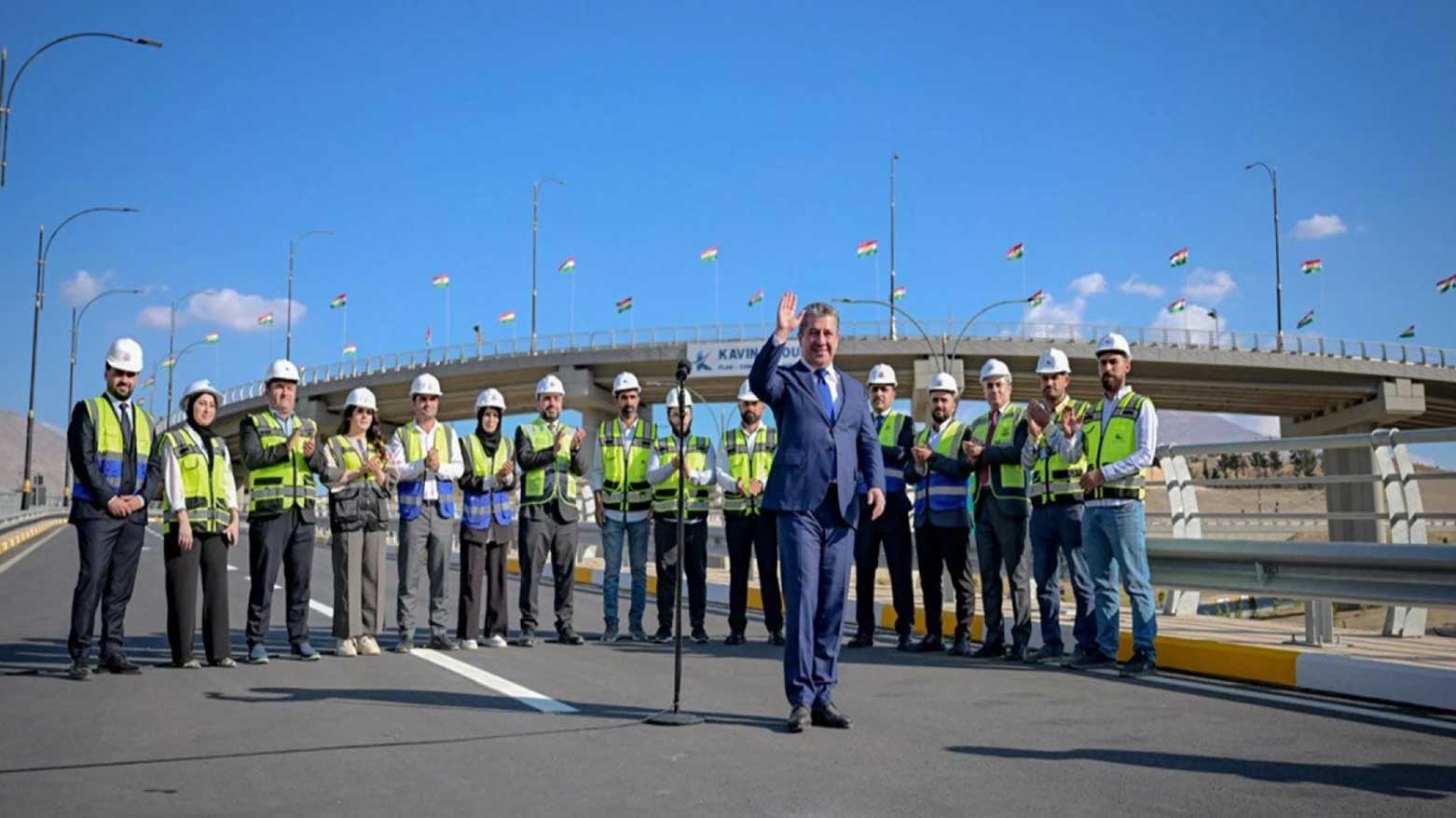
Karokh Abdullah Agha
Writer
Iraq’s Democratic Moment: When Everyone is Right and No One Trusts Anyone
A reflection on the legitimacy paradox underlying Iraq’s democratic crisis, and the implications of governance-centered campaigning by the Kurdistan Democratic Party for rebuilding the principal–agent relationship.

By Karokh Abdullah Agha
The Legitimacy Paradox in Contemporary Democracies:
A persistent legitimacy paradox characterizes contemporary democratic systems. Citizens remain committed to democratic principles; however, their expectations for institutions encompass two seemingly opposing outcomes. Firstly, there is a demand for broad inclusion, participation, and transparency. Conversely, there is an expectation of prompt, effective decision-making in response to complex challenges. This generates a structural tension between inclusivity and efficacy, within which democratic dissatisfaction emerges.
The current crisis confronting many democracies is thus not a crisis of democratic ideals but of the practical capacity of institutions to reconcile conflicting public expectations. This paradox serves as a fundamental analytical perspective through which the ongoing development of democracy can be comprehended.
Political parties sit at the heart of this paradox. They are the institutions through which democratic systems organize competition, convert public preferences into policy, and form governments capable of acting. Yet citizens increasingly see parties as distant, self-interested, or corrupt, even as they rely on them to uphold the democratic principles they value. The result is a relationship marked by both distrust and necessity. This pattern is evident across both established and emerging democracies.
According to the Special Eurobarometer 470 report on corruption (European Union, 2017), 56% of respondents believed that political parties were the institutions most affected by corruption. Whether this perception reflects reality is less important than its political effect: declining confidence in parties, which has fueled the rise of populist, anti-establishment, and radical platforms that present themselves as alternatives to the existing political order. However, Iraq’s experience cannot be fully understood solely in terms of this global trend.
Iraq’s Political Context: History, Identity, and Security:
Distinct historical and social forces shape Iraq’s democratic landscape. Iraq is a post-conflict polity in which political identity, personal security, and economic livelihood are closely intertwined. The legacy of authoritarianism, mass violence, and repression has produced enduring and distinct fears among different communities. For Kurds, the memory of systematic persecution, including chemical weapon attacks and ethnic cleansing during the Anfal campaign, generates a concern for autonomy and protection from domination.
Within Shi’a communities, the historical struggle for religious and political recognition has shaped expectations of majority representation and institutional inclusion. Sunni communities, facing collective suspicion in the post-2003 order, remain concerned about loss of influence and vulnerability.
These historically grounded experiences have engendered what may be termed a security dilemma in the realm of political life, in which each group endeavors to preserve its influence, fearing that relinquishing power could result in exclusion or harm. Consequently, political competition transforms into a strategic endeavor aimed at safeguarding interests rather than a neutral contest of policies or programs.
This occurs within a geopolitical landscape that reinforces the legitimacy paradox rather than alleviating it. Iraq occupies a strategic position at the intersection of regional and global power interests. Neighboring states, non-state actors, and international powers maintain varying degrees of influence over their political and security institutions. The post-ISIS security environment further intensified demands for swift, decisive decision-making.
As a result, Iraqi political actors are expected to simultaneously demonstrate inclusivity and broad representation while exercising decisive authority to ensure security and stability. This dual expectation heightens the contradiction at the core of the democratic system. The consequence has been a political environment in which parties seek to maintain control, protect their constituencies, and secure institutional dominance, reproducing a political equilibrium marked by competition for influence rather than collective governance.
A Governance-Centered Shift in the Kurdistan Region:
The Kurdistan Democratic Party has signaled a clear departure from the political loop that has shaped much of Iraq’s post-2003 party competition. In the most recent campaign and in the governance agenda of the ninth cabinet under the Prime Minister Masrour Barzani, the central emphasis has been placed on state capacity, institutional performance, and the delivery of public services. Rather than grounding political support primarily in party identity, historical entitlements, or intermediary networks, the party has oriented its message around improving electricity provision, digitizing public services, water security infrastructure, economic diversification, and administrative efficiency.
This constitutes a notable shift in how political credibility is being constructed. Legitimacy is derived not from the distribution of selective benefits, but from proven improvements in governance and the everyday operation of institutions. In a setting where defensive strategies of preservation and control have often shaped political competition, this shift aims to re-establish political authority based on public outcomes rather than factional negotiations.
This reorientation also has implications for the relationship between citizens and governing institutions. In systems shaped by clientelist norms, the link between the public and the state is mediated through personal trust networks and intermediaries who negotiate access to employment, services, and protection.
By placing public service delivery and administrative reform at the center of its political program, the Kurdistan Democratic Party is seeking to shift that relationship toward a more direct, institutional connection. Citizens are encouraged to evaluate government performance based on reliability, transparency, and service provision rather than personal mediation or partisan loyalty.
This is not simply a policy adjustment, but a gradual process of reshaping expectations and behavior within political institutions. In theoretical terms, this indicates a shift within normative institutional frameworks, where the norms embedded not only in political practice but also within society start to change. What has become a defensive and competitive form of political engagement is being redirected toward a service-oriented approach.
The culture of politics is being shaped within institutions themselves, rather than around external expectations or informal arrangements, gradually reconfiguring the principal–agent relationship (with the citizen as the principal who delegates authority, and the elected representative or governing body as the agent responsible for exercising that authority), grounding legitimacy in public governance and dependable service delivery.
Rebuilding Trust:
The question of how democratic authority is sustained does not depend solely on transparency. As research on political representation demonstrates, transparency can sometimes produce outcomes that run counter to its intended purpose. The United Kingdom, for example, has one of the most comprehensive disclosure regimes in the world, yet public confidence in political parties remains notably low. By contrast, Denmark operates with comparatively less stringent transparency regulations but maintains a high level of social trust in its political system.
As Sam Power explains in his book Party Funding and Corruption (2020), the difference lies not in the quantity of information released but in the quality of institutional relationships and expectations that shape how citizens interpret political behavior. Transparency reveals practices, but it does not determine whether those practices are perceived as legitimate. Trust is not generated by disclosure alone, but through the consistent experience of fairness, reliability, and institutional integrity.
This distinction is crucial in Iraq. The role of political parties cannot be limited to formal organizational structures, nor can legitimacy be regained solely through procedural reform. Political access has various meanings in the Iraqi context: it can imply recognition, status, belonging, protection, or the opportunity for material gain, even if it does not result in direct influence over policy decisions. These forms of access are rooted in historical experiences and everyday practical realities, in which institutions have not consistently provided reliable channels for representation or service provision.
The challenge, therefore, is to prevent access from functioning as a parallel system of political authority, where informal relationships replace public institutions. If access is seen as something that can be informally obtained or negotiated outside institutional frameworks, trust in the political system will continue to decline regardless of legal or administrative reforms.
Reform in Iraq will therefore be shaped as much by perceptions as by formal institutional change. Early reform, which prioritizes accountability, predictable service delivery, and the reliability of state institutions, strengthens the basis for later expansion of responsiveness. Delayed reform, introduced only once political pressures intensify or legitimacy declines further, carries a significantly greater risk of destabilization. Given Iraq’s historical experience of conflict, authoritarianism, and state fragmentation, such destabilization could be severe.
The path forward requires institutions that demonstrate consistency, transparency understood as clarity rather than exposure alone, and a political culture that encourages citizens to evaluate governance through public outcomes rather than personal intermediaries. This is a long-term process, but it is also necessary. The sustainability of democratic life in Iraq will depend on whether political authority can be grounded in confidence, reliability, and institutional trust rather than in coercion, clientelism, or reactive crisis management.
The views expressed in this article are those of the author and do not necessarily reflect the views of Kurdistan24.